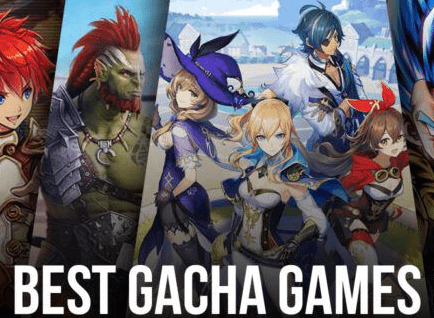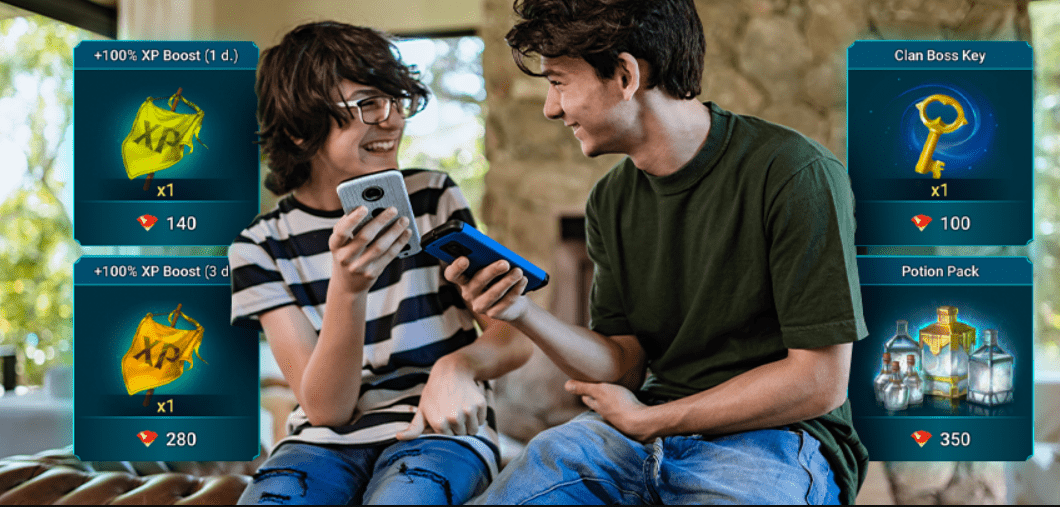Recently, gamers have become more used to playing gacha games, particularly in Asia and the United States. But due to worries about their addictive nature and potential harm to weak people, such as children and teenagers, some countries have banned or restricted specific types of Gacha games. How do Gacha games work, and why are they so well-liked? This essay will delve deeper into the gacha gaming phenomenon by examining its origins and allure. Therefore, let’s begin.
What are Gacha Games?
Gacha games are a category of mobile phone games that involve gathering virtual goods or characters using a “Gacha” system. Users of this system pay real money or in-game currency to spin a toy vending machine or virtual machine that awards them a gift at random. A new character, object, or power-up can be utilised as a prize or to advance the game. Although these games can be downloaded for free, purchasing the in-game currency needed to use the Gacha machine may be necessary. Additionally, some Gacha games provide time-limited or exclusive items, which can encourage players to use real money to purchase them. However, some Gacha games can be played totally without spending any money, such as Genshin Impact.
Why are they so popular?
A large audience enjoys gacha games because of their engaging plotlines, vibrant graphics, and straightforward gameplay. Additionally, they have social features that enable users to build alliances, engage in conflict, and communicate with other players online. Collecting and customizing characters, objects, or equipment is a common feature of gacha games. It becomes more fascinating when players compete with one another or exchange goods to complete their collections. Another reason for their popularity is their free-to-play nature. The game is free to download and play, but players have the option to spend virtual currency through in-app purchases to boost their chances of finding rare goods. Gacha games usually feature well-known figures from anime, manga, or video games, which increases their popularity among followers of these franchises.
History of Gacha Games
Gacha games are designed after the Japanese “gashapon” capsule toys from the 1960s. These toys were sold in tiny plastic capsules through vending machines, much like the modern Gacha games. With time, the term “Gacha” spread to any type of vending machine that dispenses a toy or other object haphazardly. Gacha games were first established in Japan at the start of the decade. “Puzzle & Dragons,” released in 2012 by the Japanese publisher GungHo Online Entertainment, was the first Gacha game.
The game “Granblue Fantasy” was released in 2013 by Cygames, another Japanese company. By using real money or in-game currency, users could purchase additional characters and stuff using the game’s Gacha system. After becoming a major success in Japan, “Granblue Fantasy” was remade for international audiences. Since then, numerous additional Gacha games have been released, including “Fate/Grand Order,” “Fire Emblem Heroes,” and “Summoners War.” These video games have gained popularity both in Japan and beyond, with many players becoming very into the collection aspect of the games and shelling out money for expensive uncommon characters and objects.
Why have some Countries taken Steps to Regulate Gacha Games?
Some countries, including Japan and China, have taken steps to regulate Gacha games due to concerns over their potential for gambling-like behavior, the need to protect players from excessive spending, and the impact on vulnerable players, particularly children. Gacha games use a randomized system for getting in-game items or characters, which can lead to players spending enormous amounts of money in search of rare or desirable items. This system may be especially appealing to young and vulnerable players who are more likely to engage in excessive spending or addictive behavior. In 2018, the Chinese government also announced a temporary ban on the acceptance of new Gacha games while conducting an industry review. Other countries, such as Belgium and the Netherlands, have gone even further and outright prohibited certain kinds of Gacha games, with regulators ruling that they are illegal forms of gambling.
Why are Gacha games so Addictive?
Gacha games rely on randomized rewards, which means that players are not guaranteed to receive the items they desire. This creates a sense of excitement and suspense as players continue to spend money in the hopes of obtaining the rare or desirable items they seek. Many Gacha games require you to collect and build up a roster of characters or items. When players acquire new and rare items, they may become emotionally involved in their collections and experience a feeling of achievement. Gacha games frequently include community and social elements, such as multiplayer modes or events that allow players to interact with one another. This can foster a sense of community and social connection, which players usually enjoy. This game frequently offers incentives as well as rewards for regularly logging in, completing quests, or achieving certain milestones. This can give players a feeling of success and encourage them to continue playing. All of these aspects of the game make it very addictive.
What are some of the most Popular Gacha games?
There are numerous popular Gacha games available on a variety of platforms, including mobile devices, PCs, and consoles. Here are some examples of popular Gacha games:
Genshin ImpactFate/Grand OrderArknightsAnother EdenFire Emblem HeroesGuardian TalesFinal Fantasy Brave ExviusHonkai Impact 3rdDragon Ball Z Dokkan Battle
These are just a few examples of the many popular Gacha games available.
Are Gacha Games Gambling?
The question of whether or not Gacha games are gambling is debatable. Players in gacha games spend real money in exchange for the chance to win random virtual objects. Gacha games’ unpredictable prizes caused discussion about whether or not they should be regarded as gambling. Gacha games don’t normally offer monetary prizes, but some players may have developed a dependence on the game’s reward system and spent a lot of money looking for uncommon items.
Some nations regulate gacha games as a type of gambling, and they could be governed by sectoral rules and regulations. In other nations, they are not seen as gambling, and they are governed by separate laws. To make wise judgments about their involvement, players must be aware of the risks connected with gacha games.
Are Gacha Games Safe for Kids to Play?
The safety of Gacha games for kids is determined by several factors, including game mechanics, content, and community. Gacha games can be addictive, leading children to spend money to acquire rare or desirable items. Some games encourage spending through predatory strategies, which can have financial consequences for both children and parents. Furthermore, some Gacha games may contain inappropriate content that is not suitable for kids. Parents should therefore research games before allowing their children to play them, monitor their gameplay, set spending and screen time limits, and be aware of the potential risks associated with Gacha games.
There are several things you can do to help reduce the impact of Gacha games on your child: Set time limits on games: Parents can protect their kids from harmful content exposure and excessive spending on in-game currency by setting time limits on how long they play video games. Turn off in-game purchases:By limiting how much time their children spend playing games, parents may protect their children from hazardous content and prevent them from overspending on microtransactions. Play new games with your kids by downloading: Co-playing new games that your children have downloaded can be an effective means of tracking and ensuring their safety. You can gain a better understanding of the game’s content, mechanics, and potential risks by playing it with your child.
Final Words
Gacha games can be fun and attractive, but it’s important to be aware of any risks they may provide and take steps to mitigate them. Parents and guardians may contribute to creating a healthy and secure gaming environment for their children. Finally, by encouraging positive gaming behaviours and open communication, we can ensure that our passion for gaming does not damage our health. Hopefully, this article has provided you with adequate information on What Gacha Games are and Why they are so Popular. Please leave a comment if you have any additional questions or suggestions. You are free to make any additional suggestions you believe would be helpful. Thank you for taking the time to read this, and best wishes! If you’ve any thoughts on What Are Gacha Games, and Why Are They So Popular?, then feel free to drop in below comment box. Also, please subscribe to our DigitBin YouTube channel for videos tutorials. Cheers!




